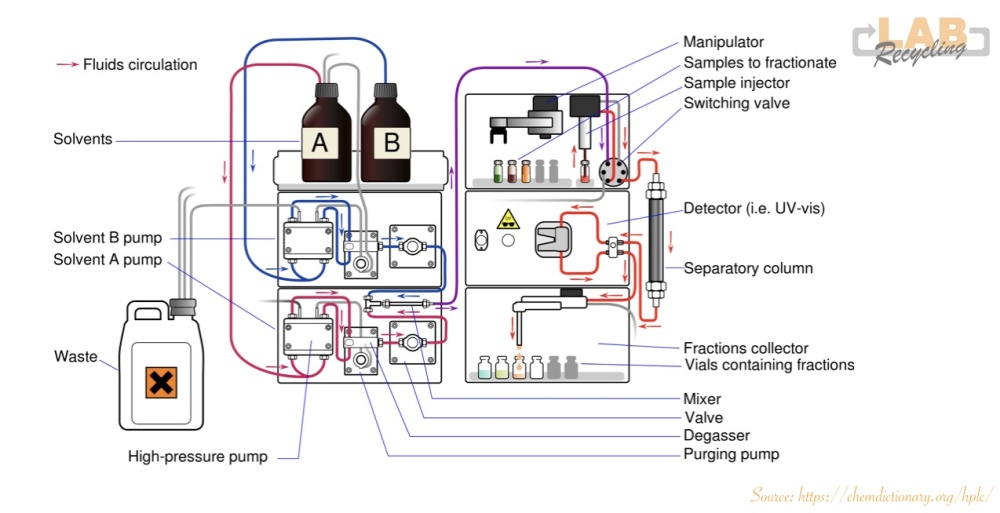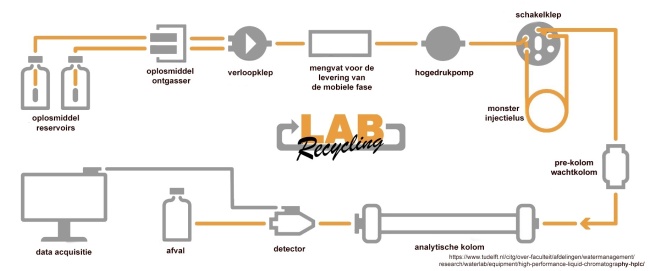High-performance liquid chromatography (HPLC; sometimes also called high-pressure liquid chromatography) is a separation method; it is liquid chromatography in which the eluent is pumped through a highly packed column at high pressure.
What is HPLC instrument?
Liquid chromatography is performed with an HPLC system. The moving phase (eluent) is pumped under high pressure through a highly packed column. The pressure can be up to about 200 bar for normal HPLC.
You can buy a new HPLC system or an used HPLC/ refurbished HPLC. Not every laboratory has the financial means to buy new chromatography equipment.
What are the uses of HPLC?
The basic purposes for using HPLC are for identifying, quantifying and purifying the individual components of the mixture. A HPLC is generaly used in field of biochemistry an analytical chemistry.
Summary HPLC
- HPLC is an analytical technique used to separate, identify or quantify each component in a mixture.
- HPLC works following the basic principle of thin layer chromatography or column chromatography, where it has a stationary phase and a mobile phase. The mobile phase flows through the stationary phase and carries the components of the mixture with it.
- There are five sections in HPLC- reservoir, pump, column, detector and computer.
Source: https://chemdictionary.org/hplc/



